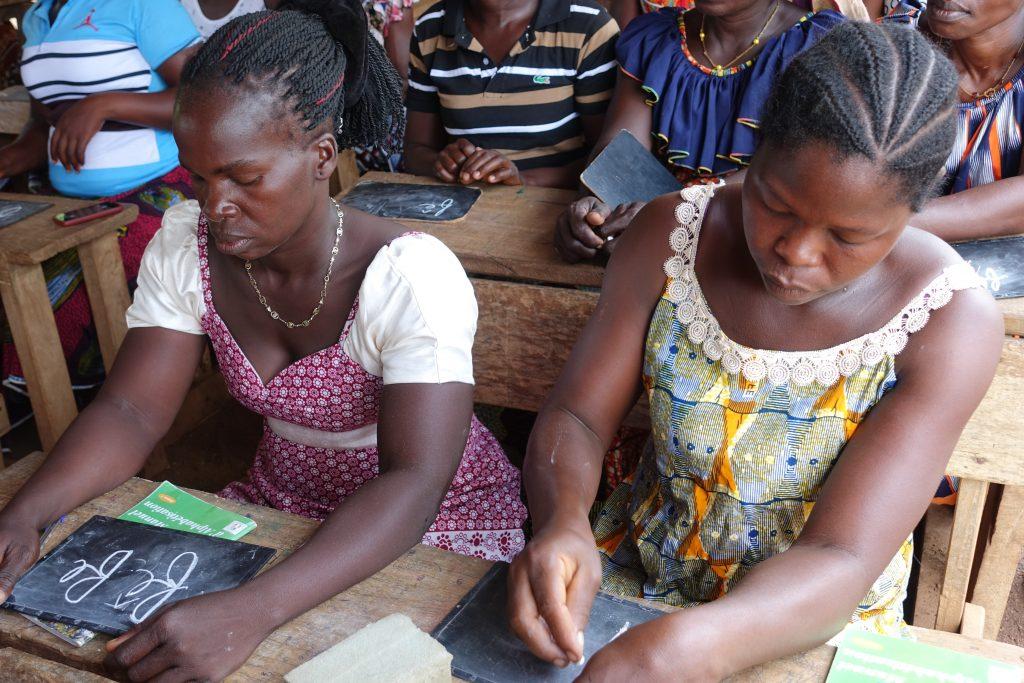
Gbokokro, a village in the southern centre of Ivory Coast, has more than a school for children. Together with TRECC, Jacobs Foundation's "Transforming Education in Cocoa Communities" program, and with the help of Nestlé, ICI offers classes for illiterate adults in the community. Most of these literacy classes consist mainly of women. During the day, however, they have to attend to their activities: look after the household and the children and do their work in the fields. They only have time to attend classes in the evenings. However, Gbokokro is not connected to the electricity network - at night it is pitch-black in the village. In order to overcome this problem, a solution has now been found with the help of solar panels that transform the intense sunshine in the village during the day into a reliable source of electricity at night.
Akenou Brigua Denis Aimé, the teacher at the Gbokokro Literacy Centre, underlines the importance of the new equipment for the community, especially for the female pupils: "It is important, because, during the day, these women go about their business. Most of them go to the field. Only at night, when they return from the fields, can they learn. However, the village is not electrified and in the evening, it is dark. This solar panel is really welcome. We really appreciate it."
In addition to the women who benefit from literacy classes, equipping the TRECC community learning centres with solar panels also enables schoolchildren to learn in lighted spaces in the evening.
"The solar panel is right next to the school, installed on a building because this building is much closer to our learning room", explains Akenou Brigua Denis Aimé. "It is connected by a wire that goes directly into the room where we have two light bulbs. In the evenings, we have electricity. We work without problems."
Gbokokro is one of ten TRECC communities where the solar panels now help increase the participation and attendance of female beneficiaries in literacy classes. The continuity of classes in the evenings also reduces dropouts and provides the possibility of a steady learning experience and thus better results. The beneficiary communities were selected on the basis of several criteria, including the number of children involved in labour and the number of women monitored by the Child Labour Monitoring and Remediation System (CLMRS).
